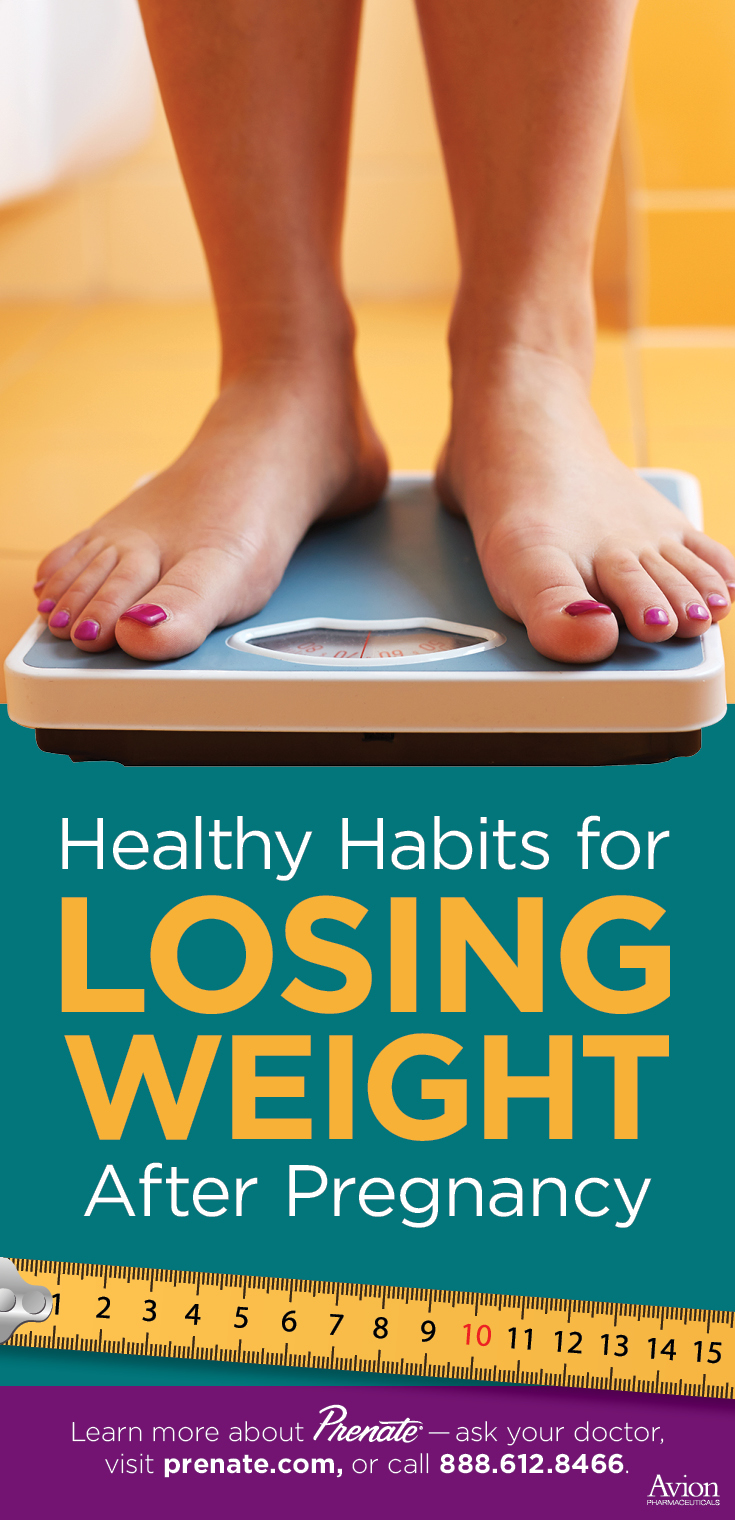Returning to Pre-Baby Weight
March 5, 2020
Maintaining a healthy weight during and after pregnancy is important for many reasons. Avoiding excessive weight gain during pregnancy can prevent adverse health issues for both mothers and their developing babies.1 But focusing on health after giving birth can help new moms look and feel their best. Although getting back in shape postpartum can be a challenge, it’s certainly possible with a little motivation and guidance.
Weight Gain During Pregnancy
Most women who experience a healthy pregnancy will gain weight. But how much weight is too much? If you’re a new mother or planning to become pregnant in the future, one of the most important things to remember is that there’s no one answer to this question. A woman’s body mass index (BMI) at the start of pregnancy is important for determining how much weight she should gain throughout pregnancy.
Generally speaking, medical guidelines suggest women adhere to a range of weight gain based on their BMI at the start of pregnancy. The Institute of Medicine and the National Research Council recommend most women gain between 2.2 pounds and 6.6 pounds total in the first trimester, then anywhere from 0.5 pounds to 1.3 pounds each week during the second and third trimesters. The specific recommended range varies based on whether the mother is underweight, normal weight, overweight or obese.2
If you’re unsure about how much weight you should gain during your pregnancy, discuss it with your health care provider. He or she can make recommendations based not only on medical guidelines, but also any nutritional needs or medical conditions you have.
Losing Weight After Pregnancy
Maintaining a healthy weight during pregnancy can greatly improve your chances of returning to a healthy weight after having your baby. It can also put you on the right track for a healthy pregnancy in the future.2
It’s important to try to implement healthy diet and exercise habits before becoming pregnant, as it’s easier to maintain healthy routines that are firmly established. Even if you don’t develop these healthy habits early on, you can still achieve a healthy pregnancy weight and successfully manage weight loss after giving birth. It may be a little more challenging but remember – you are powerful and can do it! With the help of your health care team, follow these steps to return to a healthy weight after giving birth.
Simple Steps for Maintaining Healthy Weight Loss After Pregnancy
Remember these tips may not work for every new mom. Review the list below with a qualified medical professional before committing to any major change in your diet or activity routine.
- Focus on making small, simple changes to your diet. Don’t over-restrict or beat yourself up for indulging once in a while. Studies have shown that restrictive dieting after giving birth can add further pressure and stress to new mothers (who are already adjusting to the physical and emotional changes of having a baby) and can damage self-esteem.3
- Get your exercise, but don’t overdo it. Simple, low-impact activities such as walking, yoga or Pilates can help you stay active and regain muscle strength. As you get stronger, you can increase the intensity but don’t push yourself to the point of strain or injury.
- Be consistent. If you want to see real changes, find ways to improve your nutrition and activity level that you can stick with. Often people fail at diets and exercise regimens because they require major and unsustainable lifestyle changes. Even if your goal is as simple as taking a walk around your neighborhood three times a week, it’s still a great habit and will help you achieve and maintain your long-term weight goals.
- Consider breastfeeding if you can. Breastfeeding offers benefits for babies and moms. Although many breastfeeding mothers actually experience weight gain in the first months after giving birth (due to the higher calorie intake needed for lactation and lower activity levels), one study found that pregnancy weight can begin to taper off after about six months of breastfeeding.4
- Have a support system. Whether you join a new mom’s fitness group, an online community focused on health and fitness, or reach out to friends and family, having the support of others can make a world of difference in your weight loss journey.
Vitamins to Support Nutritional Goals
Many women continue to need nutritional support after giving birth. For some women, their doctors may recommend that they continue to take their prenatal vitamins. For others, particularly women who are breastfeeding, a vitamin that is formulated to meet the needs of lactating mothers may be prescribed. Although there is no direct correlation between taking post-natal vitamins and weight loss, new mothers should consider taking them since their bodies may need a help getting the correct amount of the right nutrients.
Speak with your doctor today about the benefits of taking a daily prescription prenatal or post-natal vitamin. The Prenate® Family Line of Prenatal Vitamins offers a variety of nutritional supplements that are designed to enhance and support new mothers’ health, from pre-conception to postpartum.
You Are About To Leave This Website
By clicking continue, this link will take you to a website to which Alora Pharmaceuticals Policies & Terms of Use do not apply. Alora and its subsidiaries do not control the content or accuracy of third-party websites and assume no responsibility for their use.












